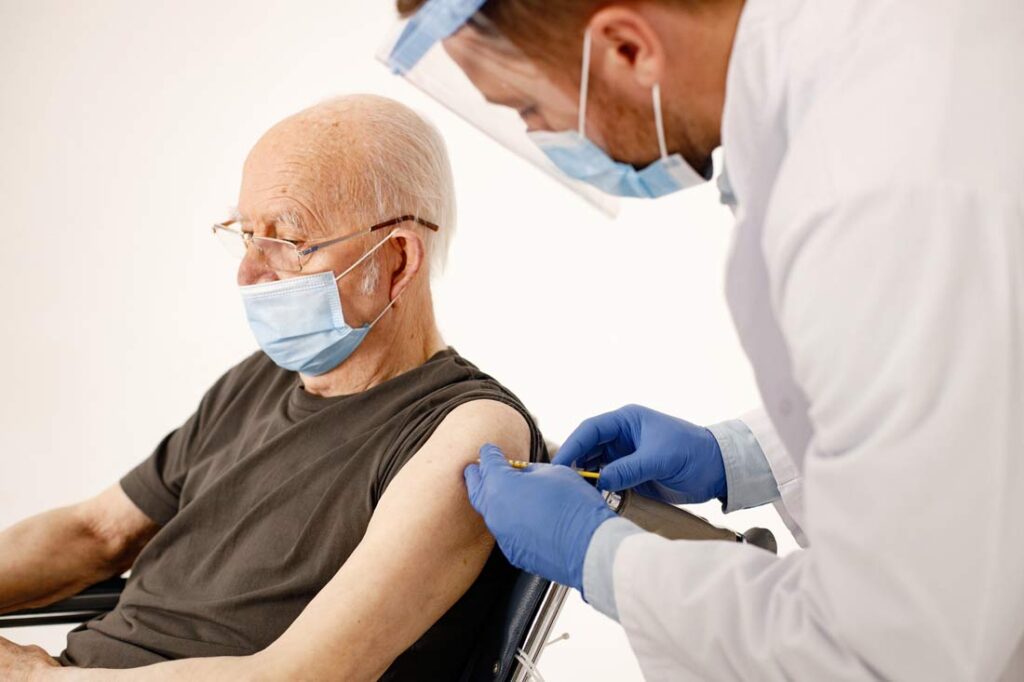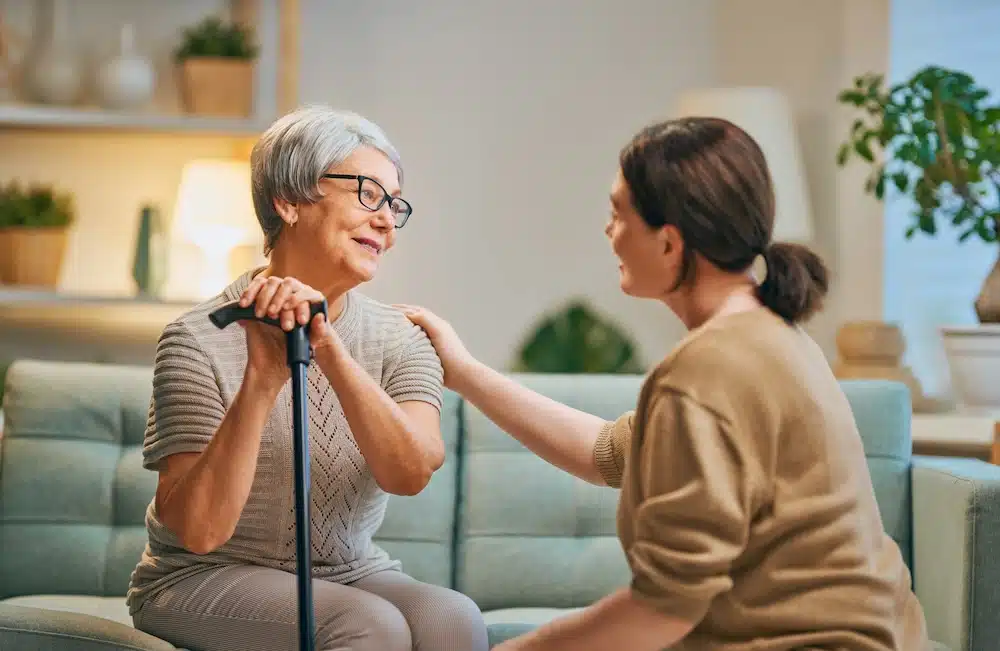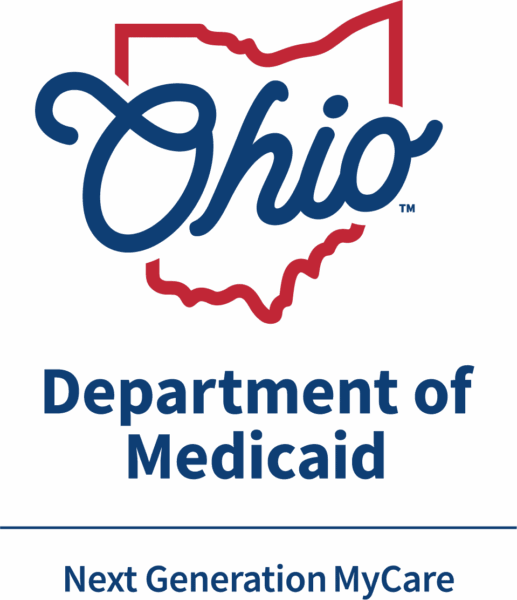What is a personal care assistant?
A personal care assistant, more commonly known as caregivers, are the individuals that help those with tasks associated with keeping themselves alive that a person can no longer do themselves.
Caregiving is very closely related to CNA’s or Certified Nurse Assistants, but they are not the same. A certified nurse assistant always works directly under a healthcare professional’s supervision in more standardized hospital settings. They work in teams with nurses, doctors, respiratory therapists, physical therapists, etc. They have an apparent line between what is and isn’t their job.
On the other hand, a caregiver has, arguably, a much bigger job. Rather than provide care strictly to the physical being of a person, you care for their emotional and mental well being as well. You quickly become very close to clients and grow intense feelings of attachment. A personal care assistant does just as the name suggests, provide personal care.
What qualities make an excellent personal care assistant?
Have you ever seen someone in a position where just a little bit of help would change the course of their day? Do you reach out to those you care about to be sure they are doing well and check if they may need anything? Do you ever offer to help them? If you answered yes, then this sort of profession may be a good fit for you.
Being an excellent personal care assistant is as simple as caring for others’ general wellbeing and taking active steps to make it better. This profession’s qualities are synonymous with the qualities required to be a caring sister or a kind brother. Every client is different and will look for features depending on their personality and needs.
The qualities that make a credible personal care assistant will vary depending on who you ask, but the common ones include the following:
● Compassionate. Being a compassionate individual is essential in this line of work. Merriam-Webster defines compassion as “sympathetic consciousness of others’ distress together with a desire to alleviate it.” In making life processes more bearable for their clients, a personal care assistant is merely doing their job.
● Patience is quite possibly the most important. When you learn to drive, having a teacher scream at you to start applying the break doesn’t usually help anything. The caregiver needs to gently encourage their client along, see them through problems with viable solutions, and step back when the situation calls for it.
● Dependability represents an umbrella that covers a lot of other related qualities. Punctuality is closely related to reliability in that clients rely heavily on the help they receive from PCA’s. Imagine if you couldn’t go to the bathroom without assistance. You’d need that help to be on time, too. They need help; their caregiver needs to be there to help them.
● Being able to pay attention to detail is necessary when helping someone get ready for the day. If there is a specific pair of socks they wear when going to the doctor, it would be helpful to remember that. The personal care assistant needs to pay enough attention to their routine to help them get through it. They work to make each process as seamless as possible for their clients.
● Being warm and always welcoming to allow the client space they require to be open in discussing their needs.
● Empathetic. The personal care assistant can see when their client is in pain but rarely sympathetic. To feel sympathy is to share the feelings of another person. Empathy is the practice of understanding the feelings of another, yet you do not share them.
● Professional. The personal care assistant is someone paid to perform an assortment of duties for a person that is a client. You may be working in people’s homes, but that doesn’t mean you have enough free rein to show up to work in their pajamas. If anything, the PCA needs to be sure that they are making efforts to make the client feel professionally seen and heard.
These qualities are important because when people have been injured, lose their sense of independence, or have any conditions limiting their physical body; it is an uphill battle. They will become discouraged. There are bad days mixed in with the good. The personal care assistant can be an incredible vessel for hope in a client’s life. Still, they need to remain patient and hopeful through the more challenging bits.
What are the duties of a personal care assistant?
The duties involved in a personal care assistant position vary dramatically depending on who you ask and what they know—this where Certified Nursing Assistants and Personal Care Assistants can be confused. A CNA is under the direct supervision of a healthcare providing team instead of a PCA who is only answerable to the client.
If the client is wholly incapacitated, then the PCA’s job is relatively comprehensive. Imagine what your life would look like without the full use of your faculties. You would need a lot of help. Yet, if the client is mostly independent and only requires a little help here and there with small things, the caregiver has a much different job.
The More They Can Do
An essential yet frequently overlooked part of a caregiver’s job is to provide companionship. This could mean taking a walk down the road together. It could simply be cooking together. Whether the client requires more or less help isn’t the point, it’s that someone is there to give it.
If a client needs a little extra help around the house because their age is catching up with them, their care assistant doesn’t have to do too much to be helpful. They would do the more labor-intensive parts of domestic chores. They would do light cleaning because their client’s knees aren’t what they used to be. They would make their client’s day go better for not having to do those tasks.
If they cannot maneuver the kitchen to make all of their own meals, their caregiver would handle that. They would reach for all the spices and collect all the utensils necessary to create and serve meals for their client, just as you would do for your mom, who has a bad back. This is also helpful for clients who have specific diet restrictions but cannot keep to it themselves.
A client who needs minimal help might also have difficulty getting in and out of the car easily when heading to the grocery store. A personal care assistant would merely take over grocery shopping. Going shopping for a client is an incredible service because going out into public now is a far greater risk than ever before. Running simple errands for a client can be an integral part of the job.
Domestic tasks that take any sort of moving are generally considered a form of cleaning, but that’s not true. You could bring in the mail from their mailbox; you could be carrying a large box or taking out the trash. There are so many small parts of life that are overlooked when you are physically capable. People in all kinds of situations can find relief in some form of help, but those who have more issues need more help.
The Less They Can Do
Now to consider clients that need a medium or large amount of help take some imagination. There are those who can’t walk, those who can’t use one side of their body or both of their legs. They may not have legs. Perhaps their ailment isn’t physical, but mental?
If a person occasionally needs gentle reminders that they are indeed in their own house, in this state, in this year, and this person is president, then someone really needs to be there to remind them. Confusion is scary. Patience is required. It is probably not easy to remind your loved one 300 times a day that you are their relative and have, yes, actually known them your whole life while they look at you like some stranger in their home.
When a person has memory loss, they may just need to be encouraged back on track. There is also the case in which they have most of their memory, but there are gaps. The PCA’s client may live in Florida near a river, look outside, and ask why the Saint Croix River, located in Minnesota, seems dark.
The duty of the caregiver, in that case, is to, first, make a decision. They could remind their client that that is a river located in south Florida, or ask questions about that Saint Croix River. They can take a trip down memory lane and explore an experience their client is willing to share.
More common than their physical location, the client could merely forget to take their medication with food or when directed by their physician. A personal care assistant can serve as an extra pair of eyes to monitor the client to ensure they take that blood pressure medication they have to take with their breakfast.
Another advantage of having a PCA is hands-on help with something like regular physical therapy exercises. If a client cannot walk due to mobility issues and their primary care has enabled them to receive physical therapy two out of seven days of the week, they still need to practice those movements. A caregiver can physically guide and cue the client to complete their exercises safely and effectively.
Suppose a client has severe mobility issues that hinder their ability to move from point A to point B. In that case, a personal care assistant becomes immediately essential, as falling becomes a serious risk. The national caregiving company Comfort Keepers explains fall prevention amongst other critical services provided by PCA’s. If a client needs help moving from their bed to their wheelchair to their special recliner where they read the morning paper, their caregiver needs to be there to assist in that transition.
Have you ever been immobile, stuck in one spot for reasons beyond you? If yes, then you know how frustrating it can be waiting for someone to help you. Then you need to give them a moment to figure out the logistics of this transition.
If a caregiver’s mission is to make the daily life of their clients more manageable, it is to be assumed that supporting clients who can’t move on their own is just a part of the deal. Moving a person is easier than you’d think. With the right form, leverage, and execution, you can make another human move quite effectively.
When a PCA has a position in a household with a client who can’t walk and is without most of their own faculties, one of the essential duties is to help them with hygiene. You may be concerned that this possibly the worst part of the job, but it is not. Personal hygiene is a part of independent living that some may need a bit of extra help with. This part of a PCA’s role will involve doing most anything for a client that a client can’t do for themselves. An example may just be handing them their toothbrush or helping them bathe.
As it is in all industries, every client and their individual needs can vary greatly. And because everyone is their own person, you can’t ever be too sure what role a PCA will play in that household. However, you can be sure that it will involve helping the client along in their day while safeguarding their physical and emotional wellbeing.
What skills should a personal care assistant have?
PCA’s are technically in-home caregivers, which means that they drive themselves or facilitate some form of transportation to each of their clients’ locations. Yes, they generally have more than one. It may be the case more with shorter jobs where a client only needs minimal help.
Depending on the state you live and work in, there may not be any previous requirements for certifications to perform personal care. This also depends on the agency work train with and work for. It is often recommended that applicants have their CPR certifications or any other life-saving certifications to diversify and bolster their application.
CNA certifications will help, too, because they indicate that an applicant has some sort of care experience. But remember, having experience is generally not required. If you have ever cared for a sick child or an ailing loved one or an uncle who lost his leg, you have done care-related work.
How do you work as a personal care assistant?
Becoming a personal care assistant is as easy as finding the right agency. You will find that there are a lot of different companies vying for you to work for them. If you live in NY, you can sign up as a CDPAP aide through Freedom Care.
This medicaid program allows for those who need help to pick their own PCA. Besides the client’s spouse, it can be anyone! By giving families the opportunity to choose who will care for their loved one, the program, which costs nothing, gives clients the chance to bring on family and friends to help in times of great need. There are eligibility requirements, but they are as simple as having Medicaid and needing home care.
The advantage that CDPAP For NY has over home health agencies is in the role of the caregiver hired. At an agency, an aide has distinct limitations on what they can and cannot do for a client. For example, an agency personal care assistant can never administer medications, oxygen, or inject insulin to those in their care. That is the role of a nurse in that situation.
A CDPAP caregiver, on the other hand, can do all of those things making the home care experience and process more efficient. The care administered is not very medical, but they have far more freedoms seeing that they are hired by the individual, but the agency. By using this program, caregivers are able to serve those that mean the most to them and be sufficiently compensated for that work.
The best part of the program being Medicaid funded is that it allows those in need to receive help that can drastically change their living experience without spending an arm and a leg. The cost can be a big issue if a third party isn’t stepping in to assist in care coverage. With CDPAP, a personal care assistant can be anyone the client chooses and keeps quality care in the home.
If you don’t know a Medicaid recipient, but still want to work as a caregiver, you can look into becoming a HHA.
Conclusion
Whether they are working through CDPAP or Freedom Care’s Home Health Aide program, a personal care assistant will have an incredible impact on the people they care for. They are needed now more than ever.
By becoming a personal care assistant, you will effectively make life easier, more comfortable, more manageable, and just plain better for those you serve. Caring for those who are not completely able to care for themselves takes a special kind of individual. If you believe yourself capable of caring for those who need it most, consider signing up today.






